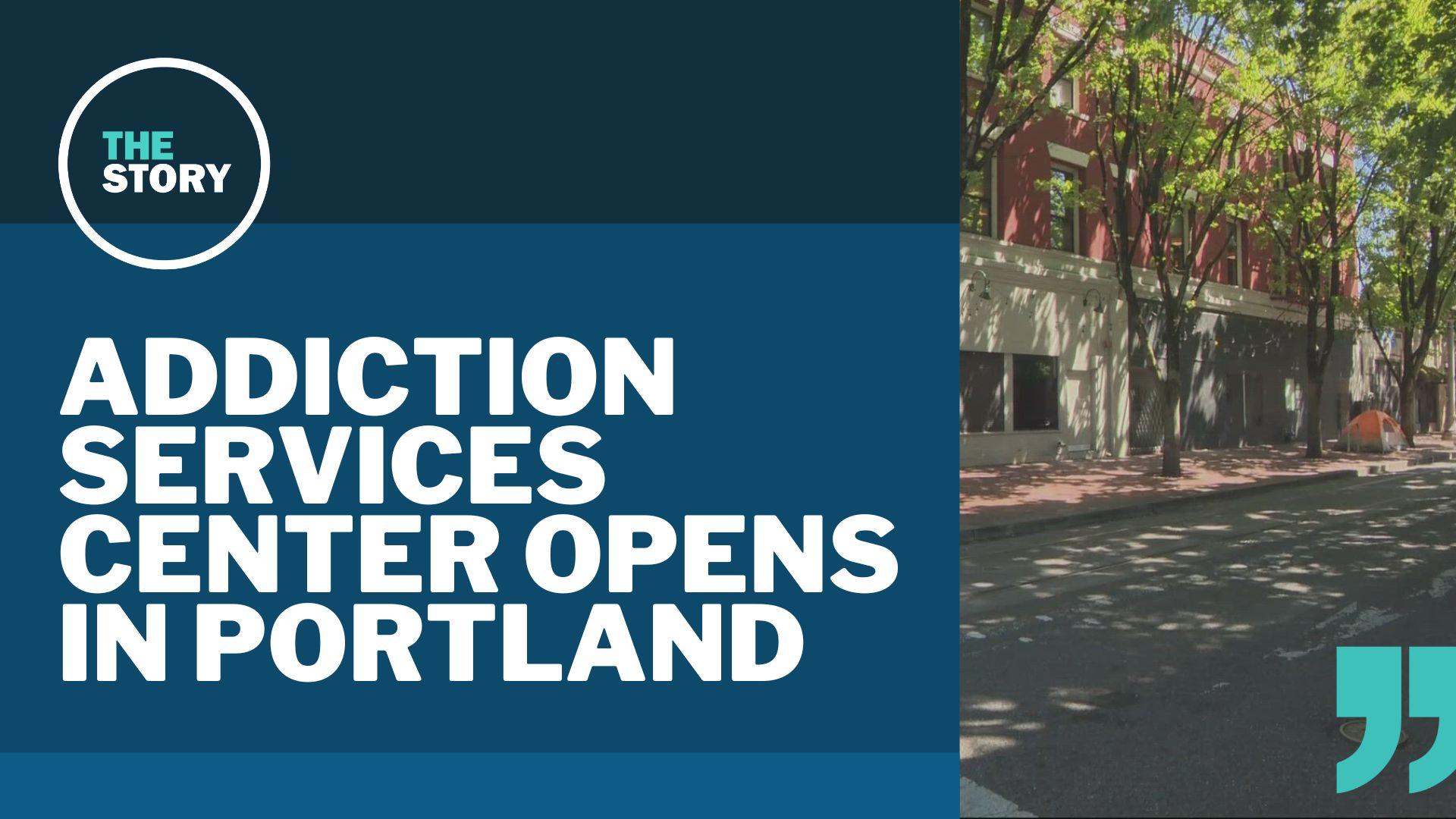PORTLAND, Ore. — On a bench in Portland’s South Park Blocks Wednesday morning, Lobo waited for his girlfriend to finish getting ready in one of the few public bathrooms in the city. Lobo has been homeless for 35 years. The two were heading out to panhandle. It was a good day for it, Lobo explained.
“My girlfriend looks hot, so they’ll give us some money and maybe we’ll be able to get well,” he said.
By "getting well," Lobo meant fending off a fentanyl withdrawal. It doesn’t take him much, he said — maybe $10 at the most.
Preschool students played during recess a few feet away as Lobo’s girlfriend came out of the silver stall in dark brown dreadlocks and a blue and white tie-dyed dress while drinking a pint of melted ice cream.
At the same time the two were starting their day, several blocks away in the heart of Old Town, city and county leaders were opening a new center for outreach workers meant to help people like Lobo.
“For me, this is about redemption. Portland is going through a redemption phase. We are recovering,” said Portland Mayor Ted Wheeler at the ribbon cutting ceremony.
Since December, Portland police have been sending outreach workers directly to people on the streets who express interest in addiction treatment services.
“I think this provider-police coordination and the expansion of this program is one of the most meaningful (things), and one of the most important,” said Multnomah County Chair Jessica Vega Pederson.
In the past seven months, police have partnered with outreach workers 17 times. More than 270 people have been offered services, 230 of them accepted and 140 got same-day help. That program is now expanding, adding more outreach workers and will be based out of a building on the corner of Northwest 6th Avenue and Glisan Street.
“I don’t have lived experience. I’m not the best person for this. I’m here to enforce the law. People who are suffering from a medical issue of addiction need people that can come to their level that are culturally competent, that can provide that in-person, immediate help,” said David Baer with the Portland Police Bureau.
“The narrative in our community is that folks don’t want help, and what we found is that folks want help if they can find out how to get it,” added John Karp-Evans with the Mental Health and Addiction Association of Oregon.
However, there are still people like Lobo, who say they simply don't want any help.
“I like living out here," he said. "I like being free, I like not having to do whatever anybody else is doing; pay taxes. I know it sounds stupid, but that’s what I like."
“Not every day is a day when people are ready, and when they are ready, we better be there for them,” Wheeler added.
The expansion of the service provider and officer partnership program comes less than two months before Multnomah County opens its deflection center in Portland’s Central Eastside, where officers will take those caught using hard drugs who choose treatment over jail. The option will become available once simple possession of drugs becomes a criminal offense again in September.

